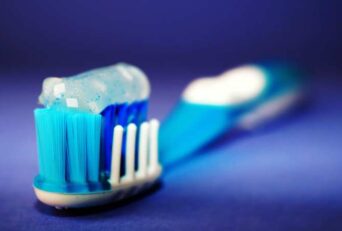No matter your age, maintaining healthy bones is crucial. Minerals are incorporated into your bones from childhood through to early adulthood. Once you reach the age of 30, you will have reached peak bone mass. From then onwards, your bone mass will begin to decline, so it’s important that you do everything possible to keep your bones and joints healthy.
If you aren’t sure where to start, here are 10 nutrition and natural lifestyle habits that you can adopt today to keep your bones and joints healthy.
Table of Contents
Eat Plenty of Vegetables
Following a balanced diet packed with plenty of vegetables is great for your bones. Vegetables are regarded as one of the best sources of vitamin C, with some research suggesting that the antioxidant effects that stem from vitamin C may help protect bone cells from harm. If you experience joint pain or conditions like arthritis, dark green leafy vegetables like broccoli and spinach can help. Consuming a diet rich in vegetables has shown to help create healthy bones throughout childhood, as well as protect bone mass in older women and young adults.
Perform Weight-Bearing and Strength Training Exercises
There are different types of exercise that can help you build and maintain healthy and strong bones. One of the best activities for bone health is high impact exercise or weight-bearing, which promotes the formation of new bone. We’re all aware of the health benefits that come from regular exercise, such as lowering your risk of heart disease, improving stamina levels, and managing your weight better, however, when it comes to bone health, performing these kinds of exercises can help increase bone formation and protect bone health.
Consume Enough Protein
Healthy bones need plenty of protein. When you take into account that 50% of bone is made from protein, changing your diet and incorporating foods such as eggs, chicken breast, and oats can be highly beneficial for bone health. If you have a low protein intake, this can result in bone loss, whereas a high protein intake can help keep bone health protected during weight loss and the aging process. Protein can also reduce inflammation in the body and help to rebuild and maintain cartilage in the joints.
Eat Foods Packed with Calcium
Known as the most important mineral for bone health, foods rich in calcium help form and maintain healthy bones and teeth. Maintaining a proper level of calcium in the body over your lifetime will help prevent osteoporosis. It’s advised to spread your calcium intake during the course of the day and stick to foods instead of supplements. To protect bone health and keep your joints healthy, calcium must be consumed every day throughout the day to optimize absorption. Your muscles, nerves, and heart require calcium to function properly too, so consuming dairy products like milk, yogurt, and cheese can help. There are lots of non-dairy sources that include high levels of calcium too, such as leafy greens, dried fruit, and seafood.
Get Plenty of Vitamin K and Vitamin D
Vitamin K and vitamin D are highly important for building strong and healthy bones. Your body needs vitamin K in order to produce prothrombin which is a protein that is crucial in blood metabolism and blood clotting. Vitamin D also plays many important roles in bone health, such as assisting your body in absorbing calcium. Research also suggests a link between joint and muscle pain and vitamin D deficiency. Incorporating foods such as fatty fish, soy milk, orange juice, and cheese are all sources of vitamin D which can help protect bone health and support your joints.
Avoid Low-Calorie Diets
If you would like to lose weight, following a low-calorie diet is never a good idea. Not only will it slow down your metabolism, but it can also result in muscle mass loss which can be dangerous for bone health. Studies have proven that diets providing 1,000 calories or less each day can cause lower bone density in obese, overweight, or normal-weight individuals. Even if you combine a low-calorie diet with resistance exercise, a reduction in bone density can still occur. It’s recommended to follow a balanced diet with at least 1,200 calories per day in order to preserve bone health.
Consider Collagen Supplements
While there is not a mountain of research on the topic currently, all evidence indicates that collagen supplements may contribute towards protecting bone health. Collagen is the main protein that is found in bones, containing amino acids such as glycine, which helps build bone, ligaments, muscle, and other tissues. You can read some of the many benefits of collagen supplements, including hair growth, weight loss, and joint pain.
Maintain a Healthy Weight
In addition to following a balanced diet, keeping your weight in check can help support bone health. For instance, being underweight puts you at a higher risk of developing osteoporosis and osteopenia. For postmenopausal women in particular, if you have lost the bone-protective effects of estrogen, you will be at an increased risk of getting the diseases. There are lots of changes that you can make to your lifestyle to maintain a healthy weight, such as factoring in regular exercise and watching what you eat. Being too heavy or too thin can have a negative impact on bone health, so staying at a balanced weight, instead of repeatedly losing and regaining can help protect bone density.
Incorporate Foods High in Zinc and Magnesium
While there are numerous bone health benefits that calcium can bring, it isn’t the only mineral that you should factor into your diet. There are several others that play a crucial role, such as zinc and magnesium. Zinc can help regulate your immune system, improve learning and memory, treat the common cold, and have a role in wound healing. Magnesium also plays a key role in converting vitamin D into an active form that encourages calcium absorption. Zinc and magnesium play active roles in achieving peak bone mass throughout childhood, as well as maintaining bone density throughout the aging process.
Eat Foods Rich in Omega-3 Fats
Foods rich in omega-3 fatty acids are well known for their anti-inflammatory benefits. There has also been research carried out to suggest that omega 3 fats can protect against bone loss throughout the aging process. In addition to factoring in omega-3 fats, it’s crucial that you ensure that your balance of omega-6 to omega-3 fats is not too high. This is because omega-6s are pro-inflammatory, whereas omega-3s are anti-inflammatory.
There are tons of health benefits that you can gain from omega-3, such as fighting anxiety and depression, improving eye health, promoting brain health, as well as improving risk factors for heart disease. Walnuts, flaxseeds, and chia seeds are great plant-based sources of omega-3 fats, which can protect bone health and help keep your joints healthy.
If you experience bone loss later in life, your risk of developing fragile bones will be increased. To avoid developing osteoporosis and having bones that break easily, there are lots of changes that you can make in day to day life to protect bone health and strengthen your joints. Many individuals prefer to go down the natural route, so following all the advice listed above can help support healthy bones and joints naturally.






